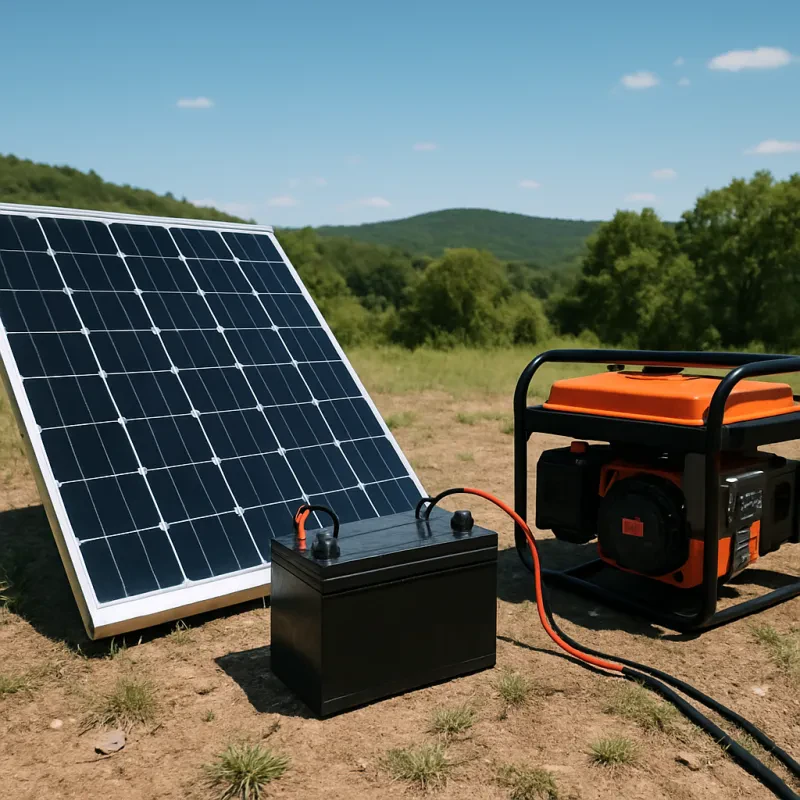In times of crisis, extreme heat can pose a significant threat to survival. Proper knowledge and preparation are essential to staying cool and avoiding heat-related illnesses. Here are some key techniques to help you beat the heat during challenging times:
1. Seek Shelter and Ventilation
When temperatures soar, it's crucial to find a cool and shaded area. Look for a well-ventilated space, such as a basement, where the temperature tends to be lower than on higher floors. Close off unnecessary rooms and use curtains or blinds to block out direct sunlight. Alternatively, consider creating an improvised shade using materials like tarps or reflective blankets.
2. Stay Hydrated
Proper hydration is key to combating the heat. Drink plenty of water, even if you don't feel particularly thirsty. Avoid alcoholic, caffeinated, or sugary drinks as they can dehydrate you faster. Consider storing a sufficient supply of clean water in advance, in case of a crisis situation where water sources may become compromised.
3. Dress Appropriately
Wearing the right clothing can make a significant difference in managing heat. Opt for loose-fitting, lightweight, and light-colored garments that allow your body to breathe and reflect sunlight. Consider covering your head with a hat or using a damp cloth to cool yourself down. Remember, staying cool is not just about fashion, but about preserving your health.
Powering Through: Mastering Electricity in Advanced Survival Prep
When it comes to advanced survival preparation, one crucial aspect that often gets overlooked is electricity. In times of crisis, having a reliable source of power can make all the difference in surviving and thriving. Whether it's staying connected to the outside world, powering essential devices, or maintaining a sense of normalcy, mastering electricity is vital. In this article, we will explore key strategies and techniques for harnessing electricity in advanced survival situations.
1. Solar Power: Tapping into the Sun's Energy
Solar power is a sustainable and renewable energy source that can be harnessed almost anywhere on the planet. Utilizing solar panels or DIY solar generators, you can convert sunlight into electricity, providing a reliable source of power even during extended periods of crisis. Learning the basics of solar panel installation and maintenance, as well as investing in quality equipment, will ensure that you have a dependable energy source when the grid goes down.
2. Portable Generators: A Backup Power Solution
Portable generators are invaluable assets in preparing for a power outage or crisis scenario. These compact and versatile devices can provide electricity for charging essential electronics, operating small appliances, or powering medical equipment. Exploring options such as propane, gasoline, or solar-powered generators and understanding their limitations and maintenance requirements is key to incorporating them effectively into your survival plan. Remember to stock up on fuel or rechargeable batteries to keep your generator running smoothly.
3. Energy Storage: Battling the Darkness
Being able to store excess electricity for later use is crucial for prolonged survival situations. Batteries play a vital role in ensuring a steady power supply when the sun goes down or during periods of limited sunlight. Investing in high-capacity deep-cycle batteries and a reliable battery management system will allow you to store and efficiently distribute energy when needed. Additionally, consider alternative energy storage options such as kinetic energy devices or gravitational systems to further augment your power source capabilities.
Navigating Crisis: Strengthening Survival Skills for Extreme Heat
In times of crisis, it is crucial to be prepared for any potential challenges that may arise. One such challenge is extreme heat, which can lead to dehydration, heatstroke, and other life-threatening conditions. In this section, we will explore some essential survival skills that can help you overcome the trials of extreme heat.
First and foremost, staying hydrated is paramount. During periods of intense heat, our bodies lose water at a rapid rate through sweating. To combat dehydration, ensure you have an ample supply of clean water at all times. Stock up on bottled water or invest in a reliable water filtration system. In addition, it is vital to ration water and avoid excessive physical exertion during the hottest parts of the day.
Finding ways to keep cool is equally crucial for survival. Seek out shade and create a cooling system by utilizing damp towels or bandanas on your neck, forehead, or wrists. If possible, take advantage of natural bodies of water such as rivers, lakes, or even shallow pools for temporary relief from the scorching heat.
Understanding the signs and symptoms of heat-related illnesses is essential for early intervention. Heat exhaustion and heatstroke are two severe conditions that can quickly escalate and become life-threatening if not recognized and treated promptly. Familiarize yourself with these symptoms, which include dizziness, nausea, fatigue, confusion, and a rapid, strong pulse. If you or someone around you displays these signs, it is crucial to seek medical help immediately.
By strengthening your survival skills and knowledge of how to navigate extreme heat, you can increase your chances of staying safe during a crisis. Remember, preparation is key, so ensure you have adequate supplies of water, create cooling strategies, and familiarize yourself with heat-related illnesses. Stay vigilant, stay informed, and stay safe.
Beyond Basic Prep: Advanced Survival Strategies for Heat, Electricity, and Crisis
As we delve deeper into the world of survival preparation, it becomes increasingly important to master advanced strategies to deal with various challenges. In this section, we will focus on three key factors to consider for advanced survival prep: heat, electricity, and crisis management.
When it comes to surviving extreme heat conditions, having a well-designed shelter and proper insulation is paramount. Maximize shade and airflow by strategically positioning your shelter. Consider using reflective materials to minimize heat absorption. Additionally, learn various heat-reducing techniques, such as building an evaporative cooling system or making use of natural water sources to cool down your body.
Electricity is an essential commodity that becomes even more vital during a crisis. Prepare for power outages by investing in alternative energy sources. Solar panels, portable generators, and hand-crank chargers are some reliable options. Create a backup power supply system that includes storing energy in batteries and implementing an energy-efficient lifestyle. Also, education on electrical repairs and maintenance can come in handy during emergencies.
Finally, crisis management skills are crucial in chaotic situations. Establish clear communication channels with your loved ones using radios, walkie-talkies, or designated meeting points. Develop a crisis plan that includes evacuation routes, emergency contacts, and essential supplies. Learning basic first aid and wilderness survival skills can provide a significant advantage in crisis scenarios. Regularly update and practice your plan to ensure maximum preparedness.


